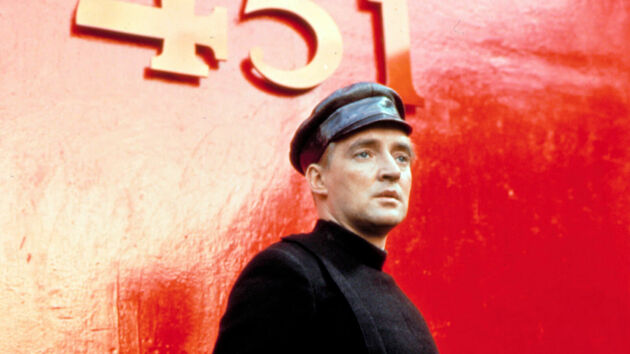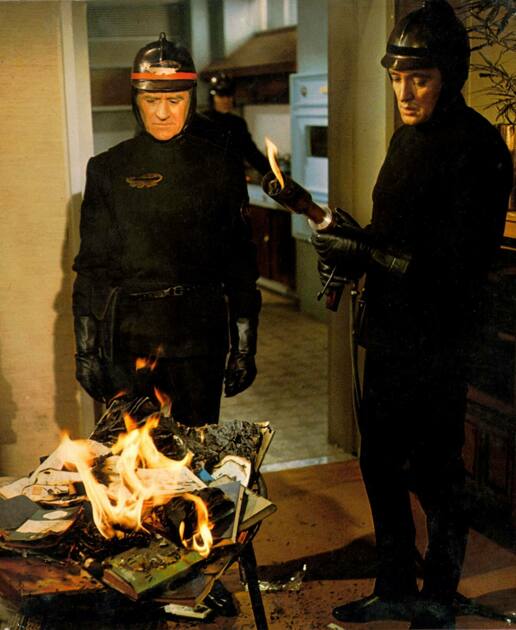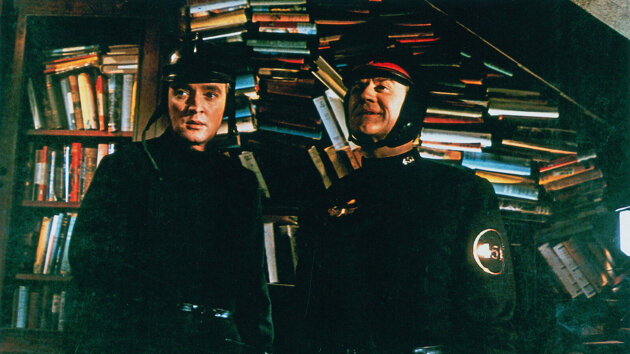Dystopian classic about a society where firefighters set fire to humanity’s literary legacy.
A totalitarian government employs firemen to destroy literature. A poster child of the force tastes the forbidden fruit and gets infected by the very curiosity he’s meant to fight. An emancipatory journey of a conformist censor disguised as a firefighter, from a lackey to a free-thinking individual.
Don’t let the government take away your books! Written only four years after George Orwell’s 1984, Ray Bradbury’s Fahrenheit 451 is an equally soul-crushing dystopian warning against the stultifying forces permeating our society. More relevant than ever, Fahrenheit denounces the populist powers that appease our lowest instincts and stunt critical thinking by waging war on culture. Interpreted by François Truffaut, the most literary-oriented of the French New Wave-directors, and turned into a glorious technicolor-drenched feast by Nicolas Roeg’s cinematography, Fahrenheit remains one of the most original and thought-provoking denouncements of conformity ever brought to the screen.
Introduction: Gawie Keyser
The Imagine screening of Fahrenheit 451 on 28 October will be introduced by film critic Gawie Keyser. Keyser writes for De Groene Amsterdammer and received the Louis Hartlooper Prize for Film Journalism for his essays on film and culture. Keyser also teaches film and life at the School of Life. He wrote the Encyclopedia of popular culture (2006) and a novel, The dark side of the street (2009).




